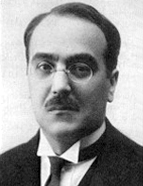

Fidelino de Figueiredo gained prominence on the Portuguese historiographical scene when, at the age of 22, he published the essay O Espírito Histórico [The Historical Spirit] (1910). This was followed by the foundation of the Sociedade Nacional de História, and then the Sociedade Portuguesa de Estudos Históricos (1911), the aim of which was to renew historical studies in Portugal. Shaped by the historiographical influence of Alexandre Herculano, Fidelino's work was developed on two fronts: combating the dominant positivist conception by rejecting objective and timeless truth and, on the other hand, creating a methodological corpus based on the relativity of historical knowledge and the relationship between the past and the present. Influenced by H. Berr's ideas in this regard, he encouraged the production of works that would synthesize the knowledge acquired based on this perspective.
With the role of subjectivity in history firmly established (B. Croce), Fidelino prioritized the historian's intervention in the process backed by solid documentation and the use of a specific methodology, moving away from the predefined models of historical analysis. This method created a new conceptual framework based on the theory of evolution (H. Spencer), considering "temporal variations" and "causal successions" (diachronic vision). Since the historical fact is unique and unrepeatable (there are no laws but causal links), the role of chance or non-prediction takes on particular importance (influence of Oliveira Martins). Thus, criticism is assumed as an epistemological element, particularly as a method ("criticism as science") in which analysis and synthesis are noteworthy. The latter confers durability and permanence to the memory of the past, thus preventing oblivion.
Fidelino also established a connection between History and Life (Paul Bourget), making History utilitarian, i.e. History became the "science of life", the common denominator for all knowledge, with Literature playing the role of the final synthesis of this theory, bringing together the knowledge of Man in his context, with the experience of Life itself. Therefore, "historical truths" would only be approximate, mere aspirations relative to the time in which they are produced, since facts cannot be gauged by repetition.
As for applying methodology to History and Literary Criticism, Fidelino pursued the causes of the phenomena that explain their evolution, determining the essential characteristics of what he considered to be "higher art": firstly, aesthetic beauty, particularly in form; secondly, truth, in terms of content; and finally, usefulness, in terms of society (for what?).
